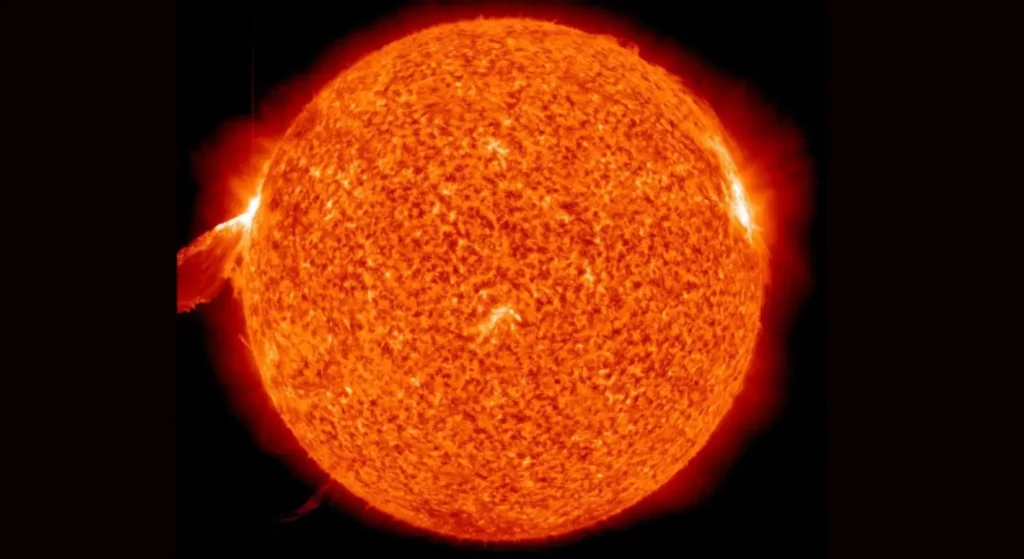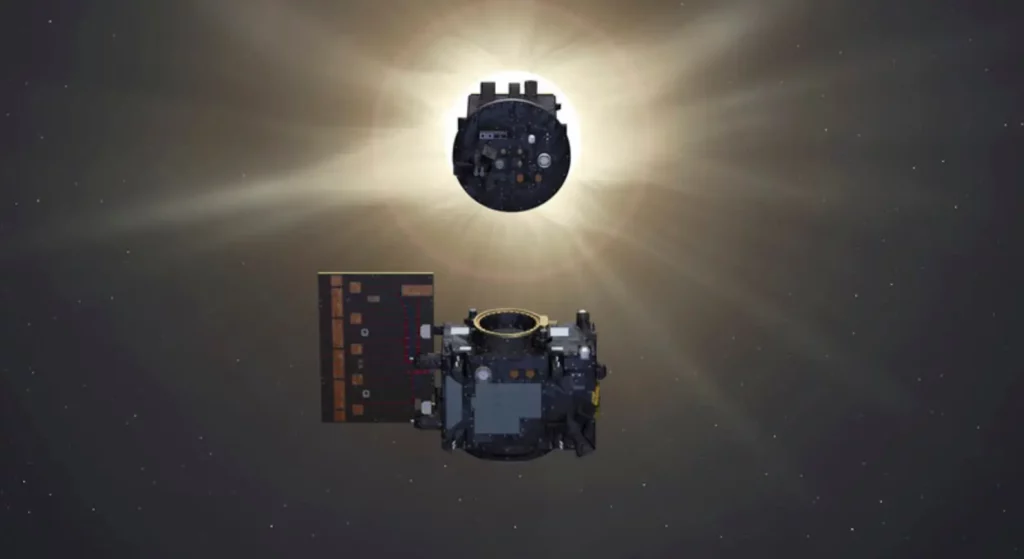
Thanks to an artificial eclipse orchestrated from space, two European satellites have captured unique images of the solar crown. A major advance that could finally lift the veil on the most burning mysteries of our star.
Thanks to an unprecedented space ballet, the sun reveals its secrets
What if we could create a solar eclipse when we wanted it? This is exactly what the mission allows today Proba-3 of the European Space Agency. Indeed, two small European satellites move in training, separated by only 150 meters. One acts like a sun cache, the other as a large eye open on the light. Thanks to this, they generate a artificial eclipse which lasts … until Six hours in a row !

Unlike natural, short and rare eclipses, this system makes it possible to observe a every 19.6 hours. Thus, researchers can scrutinize the sun in optimal conditions, never reached.
An internal structure revealed by a simple game of shadow and light
But what fascinates the most is what this technological innovation makes visible. On May 23, 2025, the coronograph ASPIICS captured a internal structure of the solar crown so far invisible. These are fine plasma filaments, revealed thanks to a green filter Unpublished and precise image processing. In other wordsan elusive solar material suddenly becomes observable.
Why does it count? Simply because the crown is one of the greatest mysteries of the sun. Well Located on the outskirts of the star, it is Warm than its surfaceand this of a factor of a thousand. This thermal anomaly has intrigued astrophysicists for decades. Thanks to these new images, they finally hope to unravel its origin.
A mission with multiple scientific facets
Susk-3, however, is not content to produce pretty images. In parallel, another instrument named GOOD Measuresolar irradiancethat is to say the intensity of solar radiation at every moment. This helps to better understand the role of the sun in the earth climate.
In addition, a third instrument called 3dees observe them solar electrons in earth radiation belts. These particles have a direct impact on satellites, communications and electrical networks. Sothe mission contributes both to basic research and technological security.
A world premiere: autonomous precision flight
What impresses just as much is the way these two satellites operate. Indeed, they fly in training Without direct command from Earthadjusting thanks to star cameras, lasers and self-guidance systems. This autonomy allows them to align themselves with a 1.5 mm precisionan unprecedented feat in spatial history.
Therefore, each eclipse is perfectly calibrated, and the images obtained are of a finesse never seen. This is what distinguishes probably from classic coronographs, which, placed too close to their objective, mask a large part of the crown.
A new era for solar exploration
By the end of 2027, prob-3 should achieve approximately 200 artificial eclipseseither more than 1,000 hours of continuous observation. It is a revolution for scientists, but also for all of us. Eventuallyby better observing our star, it is our relationship to time, to the light and the universe that we transform.
Personally, I am fascinated by this mixture of visual simplicity – shadow – and extreme technical complexity. IndeedCreating an eclipse at will is like drawing a cosmic curtain to see what is hidden behind. And what we discover is a living matteran incandescent hair that pulsates, which lives.

